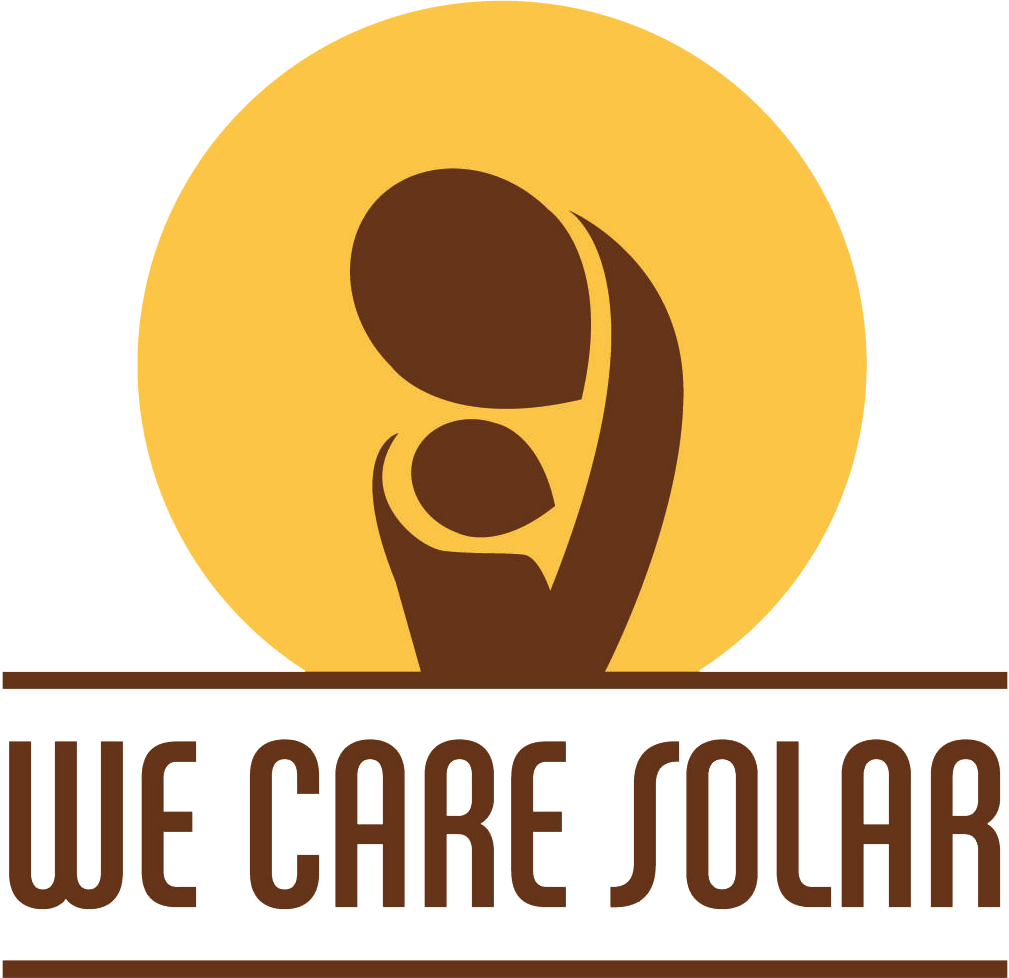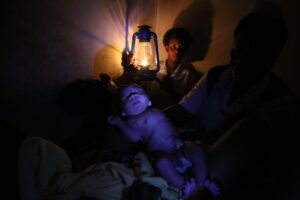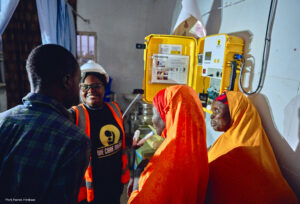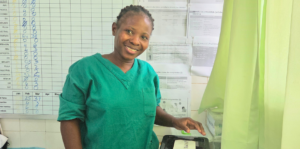The week unfolded seamlessly. We made the decision to light up the hospital pediatrics ward on Wednesday, and by Friday we had accomplished our goal! Using the solar suitcase I delivered as a foundation, we purchased a 40 watt solar panel in the city of Kaduna, as well as two small batteries and enough wire to permanently install lights along the ceiling of the Pediatrics ward. As the sun receded into the horizon, we were able to flick on the lights to the delight of the hospital staff, who now were assured that they could conduct their job with reliable lighting. This was just in time, as the next day a small explosion was audible from the hospital generator, and I was told that there was no back-up to the national electricity supply, which currently offers only 2 hours of electricity a day.
Today, I delivered a solar suitcase to a primary health care center in Zaria. I was given a tour of the health center from the midwife on call and was dismayed to see the conditions: two metal beds, a kerosene lamp, and almost NO instruments. Though the center does more than a thousand deliveries a year, the one set of delivery tools I saw consisted of a rusty scissors, an old metal clamp and a few other equally depressing instruments. The midwife informed me that without extra sets of surgical tools, they are forced to use this set over and over. It made me wonder whether WE CARE Solar should extend our cause to providing basic obstetric kits to clinics. The clinical staff was eager to try out the solar electric system, and watched intently as I provided instructions on its use. I was told that they often work by candle light, regularly forcing them to compromise the care they provide.
The other big hit were the BOGO lights that I delivered. The group “One Million Lights” partnered with us to supply solar powered flashlights to the health care providers we served by WE CARE Solar. The hospital and clinic staff were entranced by the brightly colored devices that use a small solar panel on the handle to charge the devices. They produce an intense beam of light, and I didn’t have enough to satisfy demand. In addition to distributing these to the health care workers in Zaria, I met with the primary health care director of another region called Kaura. I gave him one light for clinic workers, and at his insistence, promised to return with many many more.
The other good bit of news is that the walkie-talkies are back in action at Kofan Gayan, providing an important link between hospital midwives and emergency obstetric staff. These solar powered devices are especially important in reducing delays in care. They were temporarily removed when the hospital tried out a cell phone system as an alternative. The instability of the phone networks systems in Nigeria coupled with the failure of the phones to maintain battery charge led the hospital to abandon their use. On this trip, the hospital staff literally petitioned for the return of the walkie-talkies.
It’s so easy to underestimate the importance of reliable electricity in the United States,where a 22 hour black out would make newspaper headlines. Here, the world is in reverse, and the population has learned to adapt with the most difficult conditions. When these conditions extend to clinics and hospitals, the results can be tragic. This trip has deeply reaffirmed my commitment to bringing reliable lighting and communication to health care workers who work tirelessly to improve the health of women and children around the world.







